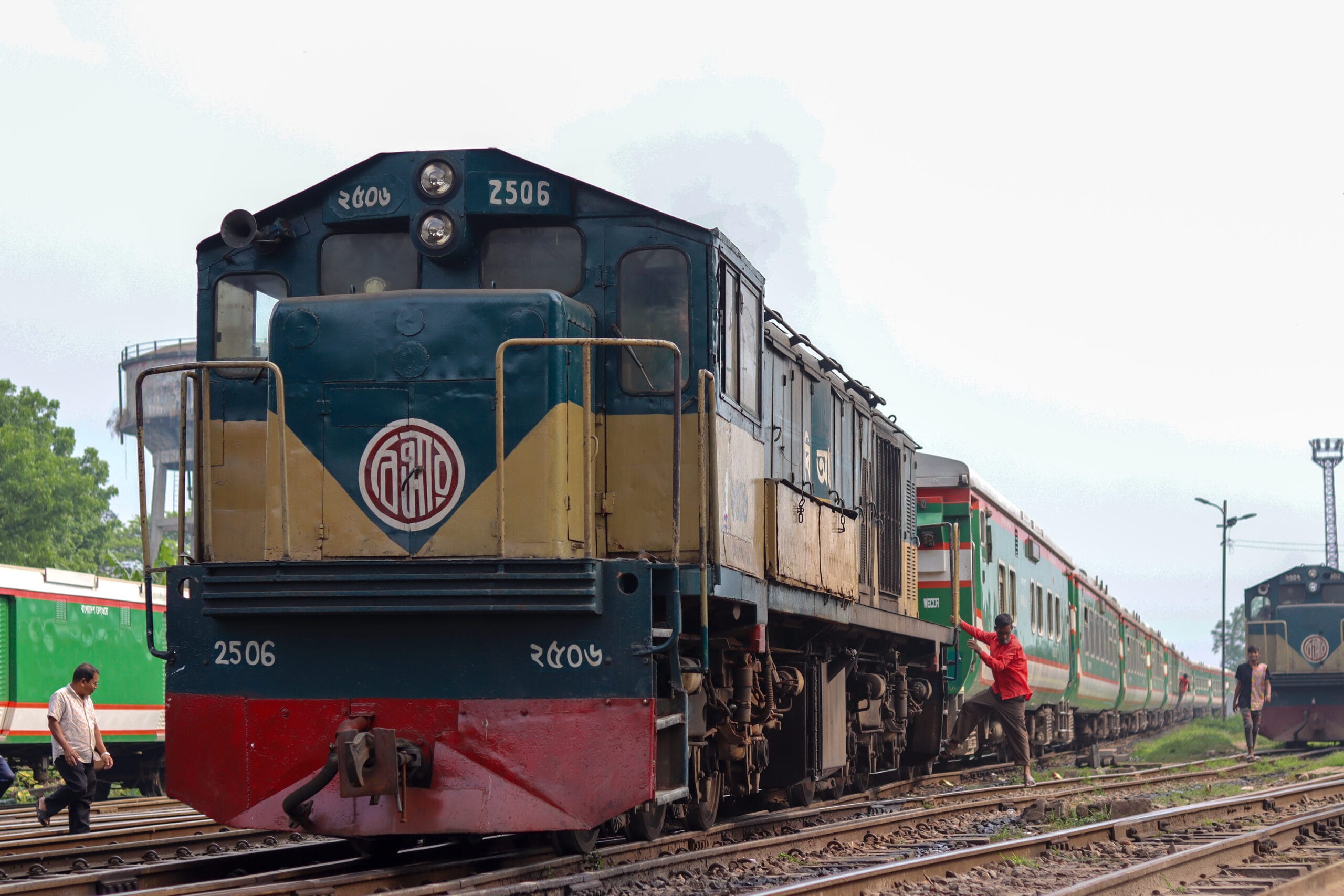Regular railway movement across the nation came to a standstill on Tuesday morning (January 28, 2024) following a strike by the railway staff. Running workers started this nationwide demonstration demanding mileage allowance and retirement benefits, which is expected to continue for an indefinite period.
Previously, the Bangladesh Railway Running Staff Oikya Parishad (Loco Masters, Guards, TTEs) had set a Monday (January 27) deadline for the government to reinstate mileage allowance into pension and gratuity services. Since their demands were not met, railway services across the country were halted from 28 January midnight.
Passengers who booked advance tickets, unaware of the strike, had to return home after waiting for hours. The situation got worse for the passengers accompanying elderly people and infants. Expressing frustration, a passenger said, “There is no way I can take my elderly father on a bus.”
Similar scenarios were reported in railway stations of other districts. None of the 350 passenger trains including 100 intercity trains departed from their originating stations.
Amid the unwanted disruption, the Ministry of Railway arranged alternative BRTC bus services for a temporary period. According to the ministry, passengers having pre-booked tickets can avail of the BRTC service from Dhaka to Chittagong, Rajshahi, Khulna, Mymensingh, Sylhet, Bogura, Cumilla and vice-versa.
Apart from the passengers’ sufferings, railway porters (Coolies) who are the daily wage earners, had to survive without any income. Tara Mia, a coolie, said, “If the trains run, we earn something. But if they don’t, we have no income.”
Earlier this month, the strike was announced by the running staff after failing to reach any favorable conclusion with the Bangladesh Railway. Around 12:02 AM, the current president of the Bangladesh Railway Running Staff and Workers Union, Saidur Rahman, declared the continuation of the strike until the government met their demands. He said, “Our nationwide indefinite work abstention has begun since there was no fruitful negotiation with the authorities. All types of trains, including freight and oil tankers, will be under the purview of the work abstention.”
An infuriated staff member said, “Why should we work beyond 8 hours if we are not paid for it? We all work for money. If we don’t get paid for overtime, why would we continue working?”
They decided to continue their strike until the government issued a written assurance.
What Is Mileage Allowance?
As per the Railway regulation, the average working day consists of eight hours. A running staff is allowed a 12-hour rest period at headquarters (home stations) or an eight-hour one at outer stations after duty.
According to the Railway Act of 1862 from the British era, if a staff works more than eight hours or during the rest period, he would get an additional financial benefit. This benefit is known as “mileage allowance” in railway terms. These rules allow staff to receive one day’s basic salary for every eight hours of overtime. Plus, an additional 75% would go into their pension based on their basic salary.
However, the Finance Ministry canceled this unlimited mileage benefit, stating that there is no provision for civil servants to receive additional money. On top of that, they have also limited pension and gratuity allowances. The employees have to stop working after the specified time.
This left locomasters and other staff in severe discontent. Since the establishment of the railway in 1862, staff have been operating according to the Railway Act. The extra allowance had been a part of their salary for 160 years. For over three years, the railway workers have been protesting for the reinstatement of the mileage system. Over time, they started walking out of operating trains to refrain from doing extra duties.
The debate over the mileage allowance of railway running staff (locomasters, guards, ticket checkers) started in 2021. On November 3, 2021, the Ministry of Finance issued a decision limiting the mileage allowance equivalent to 30 working days.
Following the 2021-2022 strikes, the Railway Minister assured to resolve the ongoing crisis on extra financial allowances in 2022. Later, in June 2023, the Director General of Railways decided to re-include the mileage benefits in pensions and gratuities.
However, within a few days, the Ministry of Finance issued a fresh directive against the allowance, stating, “No other allowances will be payable for duties performed on moving trains, and the monthly running allowance must not exceed the basic salary.”
This declaration offended railway workers, leading to an indefinite work strike. Due to a shortage of staff members, they usually have to work for excessive hours. Only 1,036 employees are working while the railway needs 2,036 to work properly.
Each staff has to handle the workload of two to operate the railway movement on time. So, it’s only natural to ask for compensation for their hard work (i.e., overtime). Another way to resolve this is to employ more people but either way, the demands of the railway staff are very reasonable.










